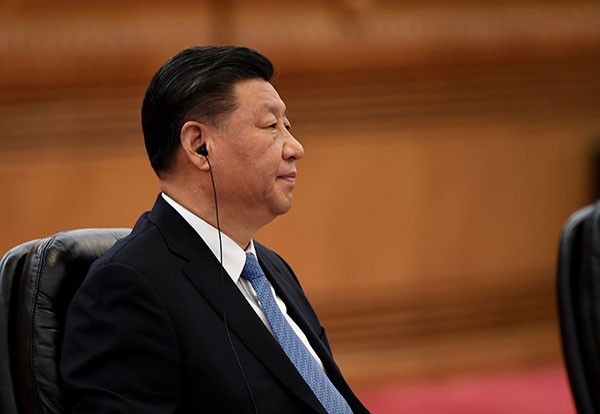Chinese President Xi Jinping sharply criticized unilateralism and trade protectionism on Tuesday, warning that "bullying or hegemonism only leads to self-isolation" and declaring that "there are no winners in tariff wars or trade wars." His remarks came just one day after the United States and China announced a surprise 90-day suspension of steep reciprocal tariffs, signaling a temporary de-escalation in their prolonged trade conflict.
Speaking at the China-CELAC Forum in Beijing, a summit of officials from the Community of Latin American and Caribbean States, Xi refrained from naming the United States directly but delivered a pointed rebuke amid continued tensions. "Great changes unseen in a century are accelerating," Xi said, adding that "unity and cooperation among nations" are now indispensable.
The summit followed a major breakthrough in trade talks over the weekend in Geneva, where Washington and Beijing agreed to roll back tariffs by 115% on each side. Under the terms of the deal, U.S. tariffs on Chinese goods dropped from 145% to 30%, while China cut its retaliatory tariffs on American imports from 125% to 10%. Non-tariff countermeasures introduced since April 2 by China were also suspended.
Chinese state media celebrated the outcome. "This shows that China's firm countermeasures and resolute stance have been highly effective," read a statement from Yuyuan Tantian, a commentary platform affiliated with state broadcaster CCTV. On Weibo, former Global Times editor Hu Xijin called the agreement "a huge victory for China's commitment to the principles of equality and mutual respect."
Hu added, It “sets an example and is bound to inspire other countries to defend their own rights." Wang Yiwei, director of the Institute of International Affairs at Renmin University, said, "This is something China must stand firm on. If even China can't hold the line, wouldn't that mean the whole world has to beg the U.S. for mercy?"
The temporary agreement did not reverse all trade penalties. The U.S. retained its 20% tariffs on Chinese imports linked to fentanyl enforcement, and China maintained its countermeasures on those goods. However, in a separate executive order, the U.S. reduced its "de minimis" tariff on Chinese parcels under $800 from 120% to 54%, effective May 14, while maintaining a $100 flat fee option.
While the Biden administration described the deal as a win, Chinese officials emphasized multilateralism and positioned China as a leader of the Global South. "China and Latin American and Caribbean countries are important members of the Global South," Xi said at the CELAC forum. "Independence and autonomy are our glorious tradition. Development and revitalization are our inherent right. And fairness and justness are our common pursuit."
Xi also pledged 66 billion yuan ($9.2 billion) in new credit lines to CELAC countries to support development projects, further cementing China's economic footprint in the Western Hemisphere. The credit will be denominated in yuan, part of Beijing's long-term campaign to increase global adoption of its currency.
Trade between China and the CELAC region surpassed $500 billion for the first time last year, and Beijing has steadily expanded its political and economic influence there.






